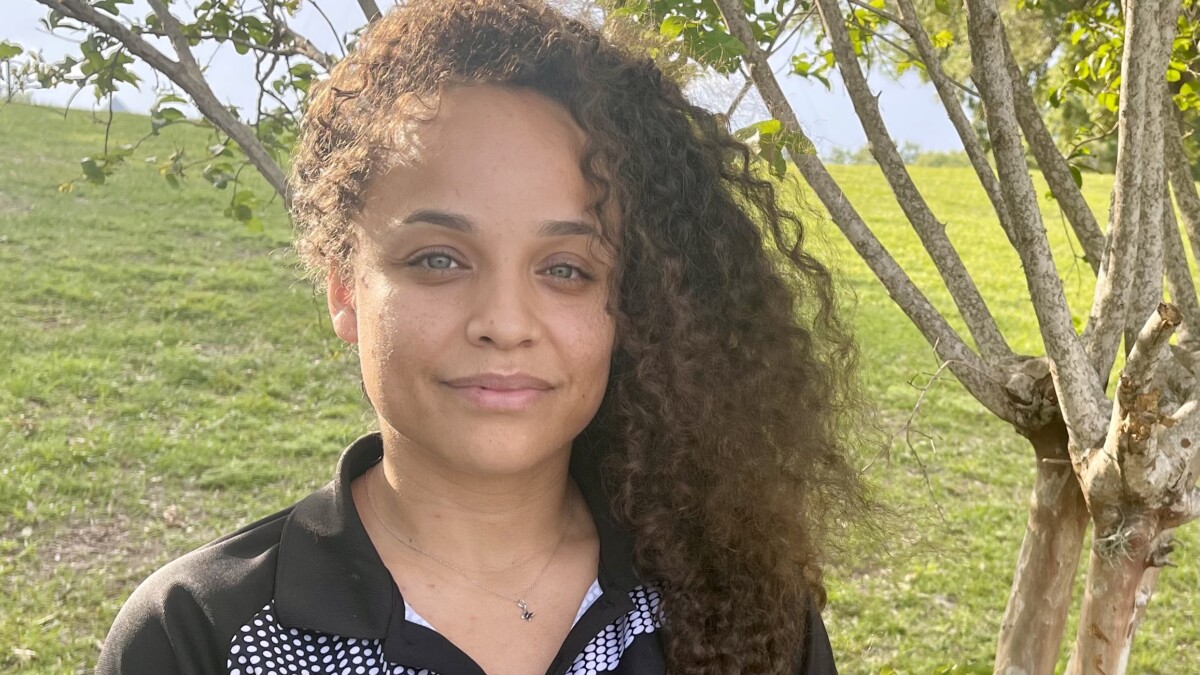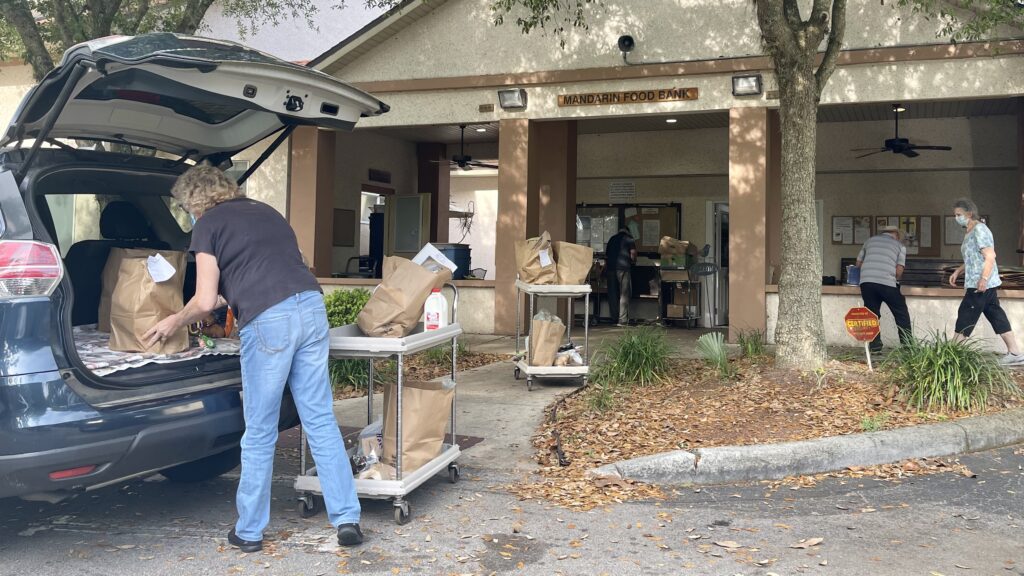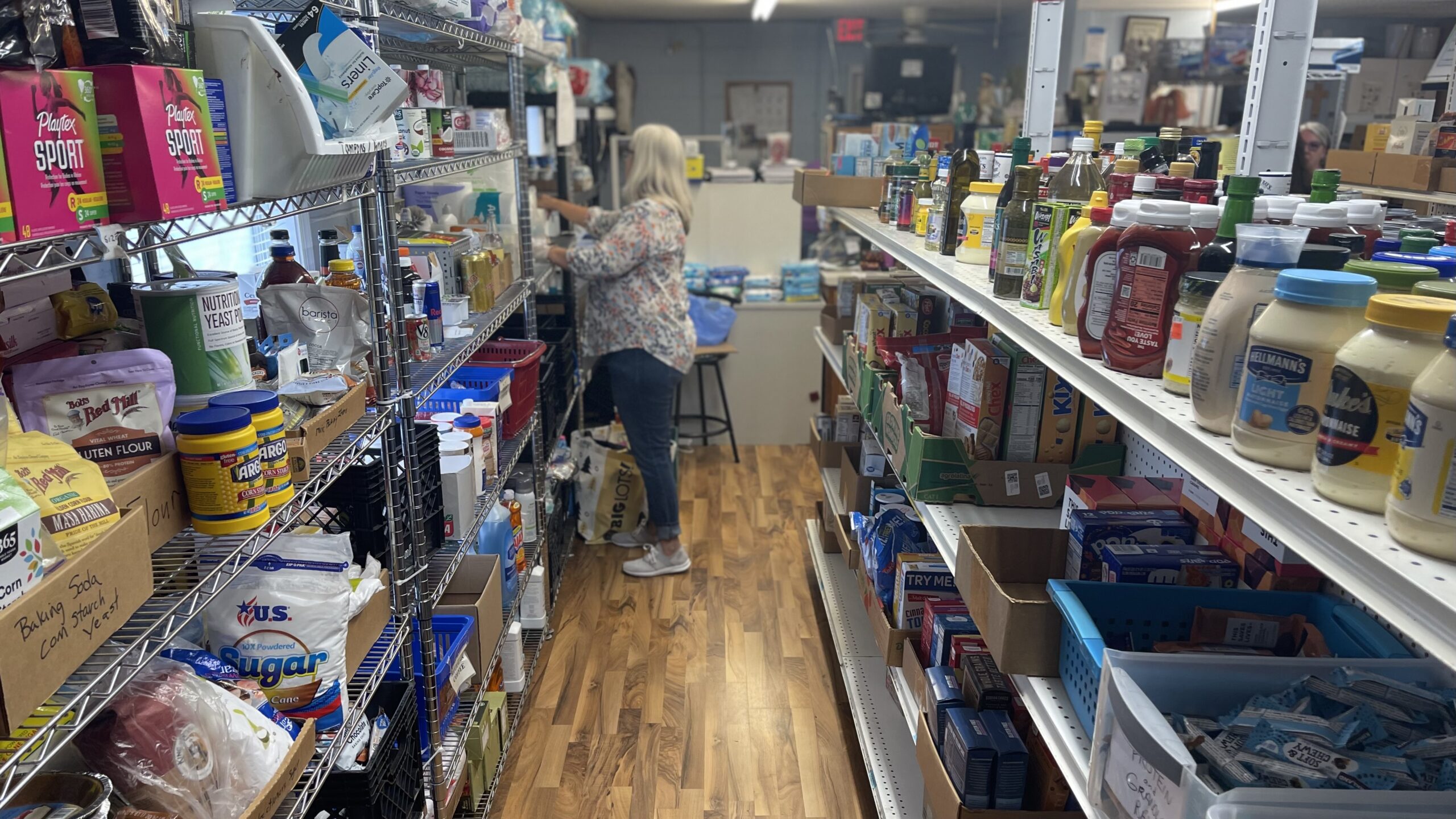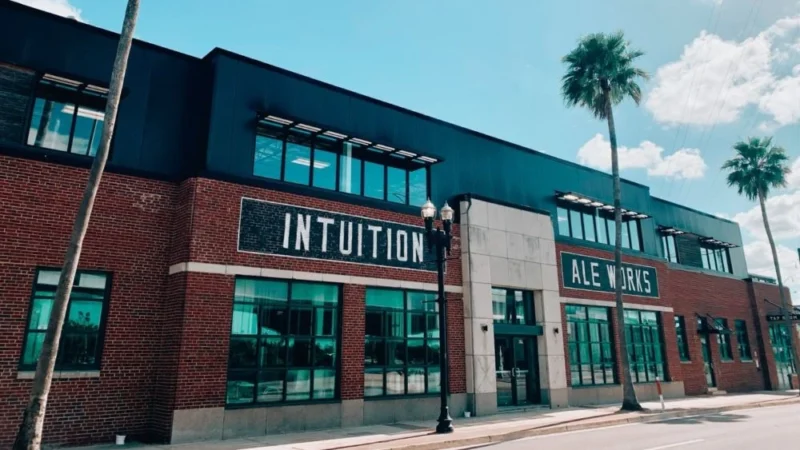Jacksonville mom Krista Jones is buying beans instead of meat for protein. It’s one of the creative steps she’s had to take to deal with rising food costs and the end of pandemic aid programs.
“It has literally meant for me as a single mom on a single income to reevaluate how we eat, what we eat,” Jones said.
Across Northeast Florida, thousands of working parents like Jones are struggling to buy groceries, even as unemployment rates improve. The price of food, gasoline and housing are at their highest point in years, forcing Jones to go to the grocery store near closing time when hot food is more likely to be marked down. She also soaks her own almonds to make non-dairy milk instead of buying it.
While the lifestyle changes save money, they cost Jones time, something already in short supply as a working mom to a home-schooled 12-year-old.
“[It] takes away from mine and his ‘us time,’ outside of work and school, because I’m having to figure out where we can get food the cheapest,” Jones said.
She’s not alone in navigating an onslaught of challenges after the end of federal aid for families during the COVID pandemic. Recent census surveys show 14% of Florida families don’t have enough to eat, the highest level of food insecurity in more than a year.

The pandemic has hit many Jacksonville residents hard. More than 15,000 people were evicted from their homes over the past two years; median home prices jumped by 40%; and at one point, more than 1- in-10 people were unemployed. But while the unemployment rate stabilized in recent months, the number of people without enough to eat has climbed in Florida.
Food banks in higher demand
In the drive-thru line Wednesday at the Mandarin Food Bank in Jacksonville, residents said between health problems and taking care of kids, rising food costs are taking a toll.
“We’ve been trying to make it; it’s been hard,” a woman named Darlene said from her car. “We got great-grands and grandchildren, so it’s been a struggle.”
“I just got out of the hospital, and I’m having a hard time really going into the grocery store and getting what I need,” another woman, Lane, said. “Groceries are almost as high as my doctor bills.”
Grocery prices have climbed more than 8% year over year, according to the USDA. Those costs are expected to climb up to another 4% this year. Southeastern Grocers, which includes Winn-Dixie and Fresco y Más, is recommending loyalty programs and discounted products to cut costs.
“We understand the concern of community members who are feeling the ongoing pressures of supply chain disruptions and inflation,” Southeastern Grocers representative Dewayne Rabon wrote in an email. “We are also navigating the impact of rising fuel prices.”
But for many of those that can’t make ends meet, food banks are left filling in the gaps.
Feeding Northeast Florida, which serves eight local counties, said seniors are at higher risk of being food insecure.
“In Northeast Florida, 1-in-6 seniors are experiencing hunger, which is twice the national average of 1-in-12,” Brittany Nazario, a spokesperson for the nonprofit, said.
The organization plans to hold almost three times as many mobile food pantries this year as it did before the pandemic, mostly serving working families.
“Roughly 60% to 70% of the people who come in our food lines have a job, but the reality is that sometimes their 9 to 5 doesn’t make ends meet,” Nazario said.
Mandarin Food Bank Director Bonnie McNulty said the number of people needing food has climbed toward early-pandemic levels in recent weeks, as pandemic aid programs have ended.
“In the very beginning of COVID, when everyone was hunkered down in their homes and everything, our numbers shot up dramatically.” McNulty said. “When all of the aid started, it kind of tapered off a little bit. We’re seeing a rise again now.”

Families forced to cut corners
For many of those parents, the child tax credit made up for lost income during the pandemic. The program, which ended in 2021, gave parents up to $300 a month per child. Floridians of color reported a loss of income at more than double the rate of white households, according to the Florida Policy Institute, a nonprofit think tank.
“I urge our lawmakers in Florida and in D.C. to keep the focus on boosting household income for people struggling to make ends meet,” said Sadaf Knight, head of FPI.
President Biden included the enhanced child tax credit in his budget proposal for the upcoming fiscal year, but it’s still being hashed out in Congress. In the meantime, for many Jacksonville families, rising food costs are pushing them to cut corners where they can.
In response to a social media call-out from Jacksonville Today, parents in Jacksonville said they’ve changed their lifestyles, from small shopping changes to cutting out meals altogether, to manage rising costs.
“Avoid buying convenience items [like] buying a big jar of applesauce instead of the little cups,” one mom wrote. “We eat more vegetables, and some days I don’t eat, because I have to make sure my kids eat,” another parent shared.
Krista Jones said her advice for other parents trying to make ends meet: rely on each other.
“Reach out to friends, try to see if you guys can work together and buy in bulk and split the cost,” Jones said. “Creativity and working together is probably going to be the best bet.”
She uses Facebook groups like Jacksonville Moms and local Buy Nothing collectives to share resources.
For families looking for assistance, here’s a list or resources and map of food banks from Feeding Northeast Florida.







